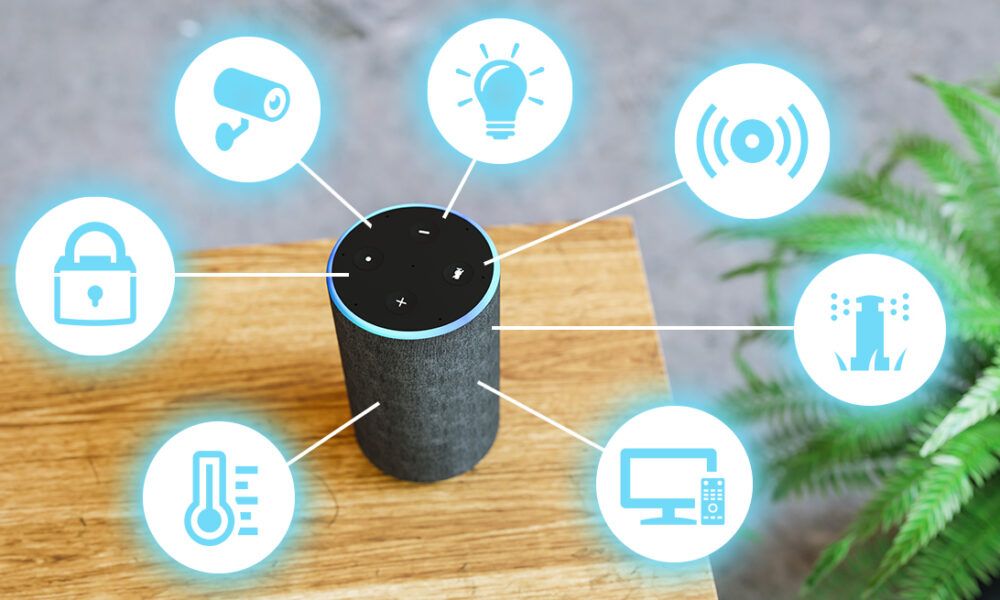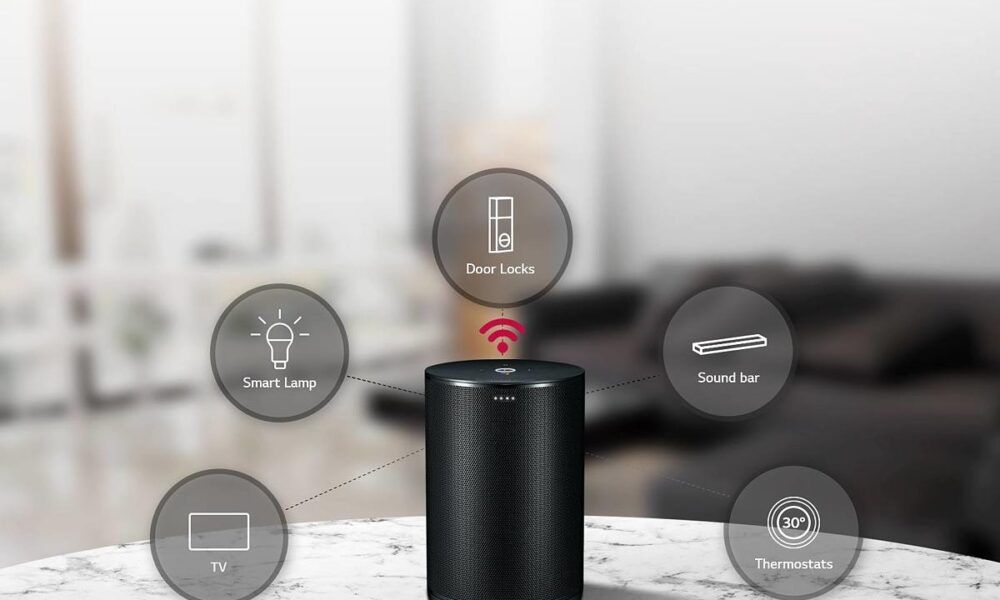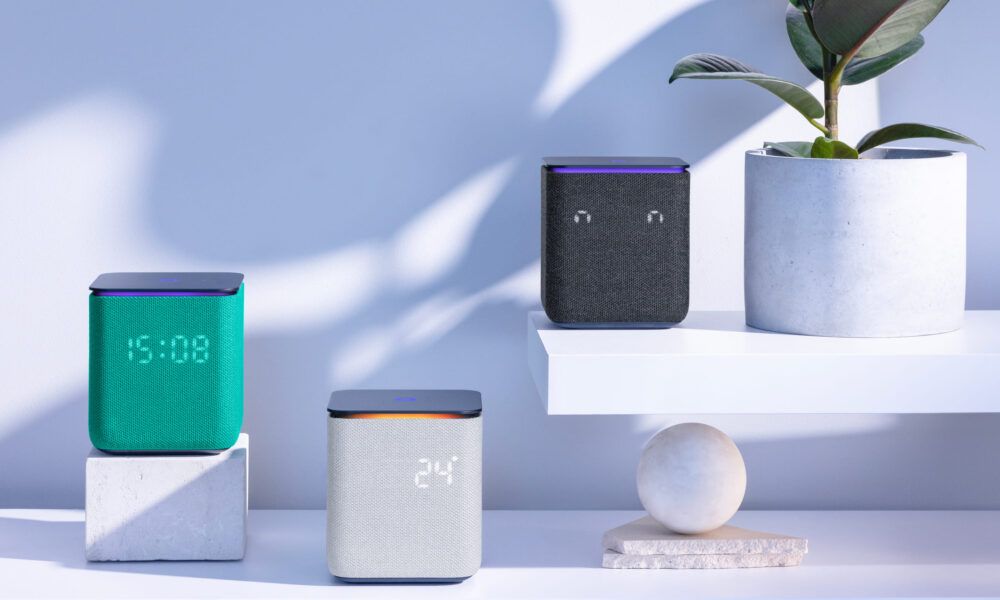
AI-enabled smart speakers are now the foundation for changing the way we interact with technology and making our everyday chores easier, faster, and much more enjoyable. Smart speakers have embedded virtual assistants such as Alexa, Google Assistant, and Siri, implying that they can answer random questions, conduct home automation through voice commands, and serve up fun.
In this article, we shall speak in detail about AI smart speakers, their features, advantages, disadvantages, and glimpses into the future for this remarkable technology.
What are AI Smart Speakers?
An AI smart speaker is a voice-controlled smart speaker that uses artificial intelligence in order to understand user commands and respond accordingly. Some can serve as personal assistants, answering questions, playing your music, controlling your smart home devices, and setting reminders and personal requests. With built-in AI and natural language processing(NLP), such speakers are able to comprehend and respond to a plethora of commands, hence making the devices easy to use and tenable for the majority of the consumers.

Key Features of AI Smart Speakers
Now take note of some of the crucial features of smart speakers:
Voice Activation: Upon uttering the wake words ‘Alexa’ or ‘Hey Google,’ you should engage the device. Everything, from checking the weather to setting appointments, can be done through smart speakers.
Home Automation: Smart speakers can control other smart devices-giving flexible hands-free control-over lights, thermostats, security cameras, and much more.
Personal Responses: Modern smart speakers can recognize particular users from their voice and can provide these users with personal information, including calendar events, musical preferences, or news updates.
Convenience of Entertainer: The smart speakers will entertain through music, audio books, and updates on what said in sports and the latest episodes of podcasts.
Information and Assistance: Smart speakers can answer any kind of inquiries, give map directions, translate words or phrases, or offer recipe instructions, making them essentially the one-stop solution for handy answers.
Task Management: Smart speakers can set reminders and create shopping lists and make plans for one’s day to assist one in managing time and tasks.
Multi-room audio: Most support multi-room audio in smart speakers, enabling users to set music synchronization across multiple speakers placed in different rooms.

Benefits of AI Smart Speakers
The benefits accrue to AI smart speakers, ranging from saving time to making services more accessible:
Convenience: Gaining a task done is easy with AI-powered speakers, invulnerable to the justification of reaching down for the device, which makes it possible for hands-free multitasking.
Accessibility for All Ages: The ease of speaking more in one’s communication makes it the target for the young, the old, and the otherwise challenged in terms of mobility to make use of technology.
Increase in Productivity: Smart speakers streamline day-to-day activities by handling reminders and warnings and quick-noticed tasks, leading to an increased level of productivity once the noise in the house subsides to that of the workplace.
Entertainment at Your Command: Smart speakers allow an effortless access to music, podcasts and other kinds of entertainment, personalizing recommendations based on user preferences.
Home Automation: Smart speakers integrate different IoT devices by centralizing control of the home, creating that experience with security and efficiency at the command of the voice.
Applications of AI Smart Speakers Across Industries:
The multidisciplinary applications of AI smart speakers
Although popularized in households, AI smart speakers have also found their place across an array of industries worldwide, including healthcare, education, business and corporate environments, hospitality and travel, and retail:
Healthcare: Utilized in hospitals and clinics, smart speakers help the patients to retrieve health information, schedule medication reminders, or connect with nursing staff through voice commands, thereby enhancing patient experience.
Education: Smart speakers in classrooms increase prospects for interactive learning experiences while supporting students with an answer to their queries, translations, and study resources.
Business: Smart speakers in the office can set up meetings, organize schedules, and even serve as virtual receptionists by receiving guests and supplying them the required information.
Hospitality and travel: Many hotels today have taken to providing AI smart speakers for in-room controls such as lighting and temperature, as well as ordering from the room service so that the guest is adequately pampered.
Retail: Some retail stores and businesses employ smart speakers as customer service assistants that answer frequently asked questions or direct customers within the store.

Challenges and Concerns:
Smart speakers offer endless advantages, yet the disadvantages are worthy talking about;
Privacy and Security: As voice-command devices, smart speakers are always listening for a wake word; hence, non-stop worries involving data privacy and the potential for unauthorized access into private conversations arise.
Voice Recognition Limitations: AI may have evolved, but smart speakers still find it tough to adapt to strong accents, background noise, or speech impediments, leading to confusion or limitations.
Dependence on Internet Connectivity: Most smart speakers rely on the internet to work properly and have their greatest value, limiting their applicability in areas with poor connectivity.
Cost of Entry: The entry-level models are generally inexpensive, but once you move to more advanced functionality, prices quickly become prohibitive; hence some potential users may be put off.”
The Future of AI Smart Speakers:
The future of AI smart speakers appears to be resplendent with laurels, as the new advances in AI, machine learning, and NLP would further enhance their efficiency. Here is what the future may hold:
Higher Personalization: Smart speakers will soon grant ever deeper personalized interactions, knead them to individual user habits and preferences for generating contextually specific recommendations and responses.
Advanced Contextual Awareness: With advancements in context recognition, smart speakers would be able to capture the abstract nuances in commands, tackle multifaceted conversations, and therefore produce far more accurate responses.
Enhanced Security Features: Developers will likely implement better security features like unique voice recognition and more sophisticated data encryption solutions for bolstering security concerned with user privacy.
Broader Compatibility with Other IoT Devices: With the latest smart home devices flooding the market, smart speakers will link much more effortlessly with other IoT devices, virtually giving birth to smart home automation.
Increased Uptake in Niche Applications: Plus, smart speakers may find the accompanying professions in niche applications, such as hospitals, education institutions, or large offices, thereby being put to work in management of information, security, or logistics.

